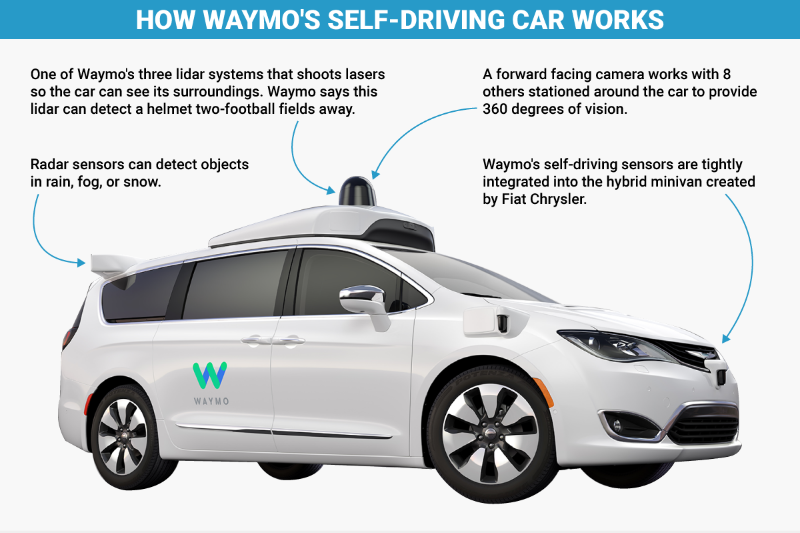
I don’t think most people appreciate how big of a deal self-driving cars will be when it is commercially available. When I talk about self-driving I mean fully autonomous car without any driver assistance, not driver assists system like “AutoPilot” in Tesla cars.
Other than Machine Learning, which self-driving cars heavily depends on, no other technology is getting nearly as much funding and attention as the Autonomous car is at the moment. Apart from all the major car manufacturers and ride-sharing services, there are at least a few dozen more independent startups and heavy-hitting tech giants who are making massive investment and bets on self-driving car technology at the moment. Including Google (with Waymo), Apple, Tesla, Uber, some of this companies have no business in car manufacturing or taxi services, yet they are heavily investing and betting on this technology to go mainstream, and want to be the first in the market with the best possible technology and planning to show for it.
Out of all the companies investing in this field, Waymo – a subsidiary of Google – is far ahead of rest in terms of the maturity of their technology, performance on the field and business planning. And to prove their readiness they are expected to go live with their services by the end of this year. Although their service will be available in a relatively small geo-fenced area in a smallish town, it’s still a lot more than anything any other company was able to do.
Having said that, there are real technical and legislative hurdles to overcome with self-driving cars. On the legislative side of things, government moves slowly with laws – because of the disruptive nature of the technology, other companies – who make money through ride sharing or taxi services (trucking services) and likely to lose big time. We are talking about 100s of billions of dollars worth of industry that could affect millions of jobs. So there will be pushback from those industries when it comes to legislation.
On the technical side of things. Waymo is currently way ahead of anyone else in terms of maturity and testing of their hardware and software. Afterall they were working on self-driving technology for almost a decade. Waymo – thanks for google – has their own special purpose machine learning hardware (TPU Chip) which is faster than anything out there. They also build their own in-house LiDAR and radar system and they arguably have the best machine learning software out there that takes input from all this special purpose hardware and convert them into on the fly and make fast decisions for self-driving to be successful. While other very capable people are also working in this field, very few have got everything to mesh together and deliver the expected result as well as Waymo has so far. Before starting their taxi service in Arizona later this year, they have been closely working with law enforcement officials and fire departments to work on ways to handle accidents or incidents involving a self-driving car, they are also working with local government officials to find best ways to start running their service with least amount of disruption. They also have a team of on-call customer service you can call from within the car and they are also training people to service/clean cars when needed. Waymo is approaching this from the top down, not as a half-baked solution. Which waymo puts ahead of almost everyone else in the self-driving race.
Can Self Driving be profitable?
Other than obvious fact that you are removing the human from the equation, there are many reasons to consider why self-driving will be an extremely profitable business which is why so many companies are gunning for it.
Putting all this together, apart from the novelty, there is a real benefit and high-profit potential with autonomous cars and whoever captures the market first is likely to make disruption in the market and making a profit at scale.
I, for one, welcome our autonomous car overloads to take over the roads in the near future.